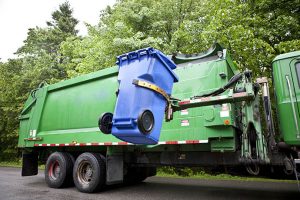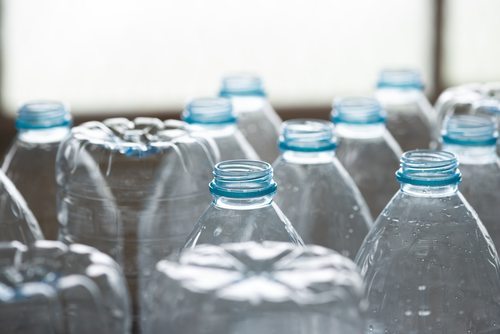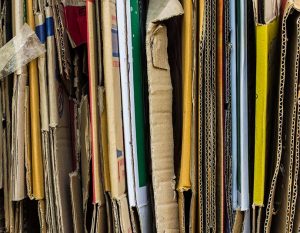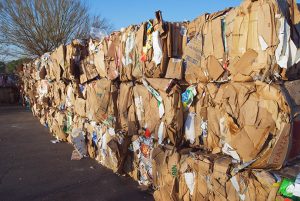
David Biderman, SWANA executive director
In a recent interview, SWANA leader David Biderman said communities don’t want to undo decades of outreach work and tell residents to stop putting certain items in the bin, even if China’s scrap policies are shaking up market realities.


 Colin Staub was a reporter and associate editor at Resource Recycling until August 2025.
Colin Staub was a reporter and associate editor at Resource Recycling until August 2025. More than three months after China announced it will restrict recyclables imports, key details on logistics and timing of the new regulations remain unknown. But industry associations are piecing together some more concrete facts.
More than three months after China announced it will restrict recyclables imports, key details on logistics and timing of the new regulations remain unknown. But industry associations are piecing together some more concrete facts. A handful of top global brand owners have made or restated pledges to use or attempt to use only reusable, recyclable or compostable packaging by 2025.
A handful of top global brand owners have made or restated pledges to use or attempt to use only reusable, recyclable or compostable packaging by 2025.

 Municipal programs in the Pacific Northwest continue to feel the impacts of China’s import restrictions, and multiple local programs are halting acceptance of certain materials in response.
Municipal programs in the Pacific Northwest continue to feel the impacts of China’s import restrictions, and multiple local programs are halting acceptance of certain materials in response. In a bid to reduce contamination in the recycling stream, California lawmakers have revised the state’s definition of polyethylene terephthalate (PET) to exclude the glycol-modified version of the resin PETG. The change means products made from the altered plastic are barred from using resin code No. 1.
In a bid to reduce contamination in the recycling stream, California lawmakers have revised the state’s definition of polyethylene terephthalate (PET) to exclude the glycol-modified version of the resin PETG. The change means products made from the altered plastic are barred from using resin code No. 1. Cartons, corrugate, expanded polystyrene, film and pouches are among the materials and products California officials say could be subject to mandatory packaging management rules.
Cartons, corrugate, expanded polystyrene, film and pouches are among the materials and products California officials say could be subject to mandatory packaging management rules. The upstream impacts of China’s import restrictions have been increasingly covered in national and local press, raising the level of public consciousness about where recyclables ultimately end up and how that could all change.
The upstream impacts of China’s import restrictions have been increasingly covered in national and local press, raising the level of public consciousness about where recyclables ultimately end up and how that could all change. The U.S. OCC market plummeted last week as China substantially slows its recovered material imports. Inside China, the lack of import capability has driven domestic OCC prices sky high.
The U.S. OCC market plummeted last week as China substantially slows its recovered material imports. Inside China, the lack of import capability has driven domestic OCC prices sky high.